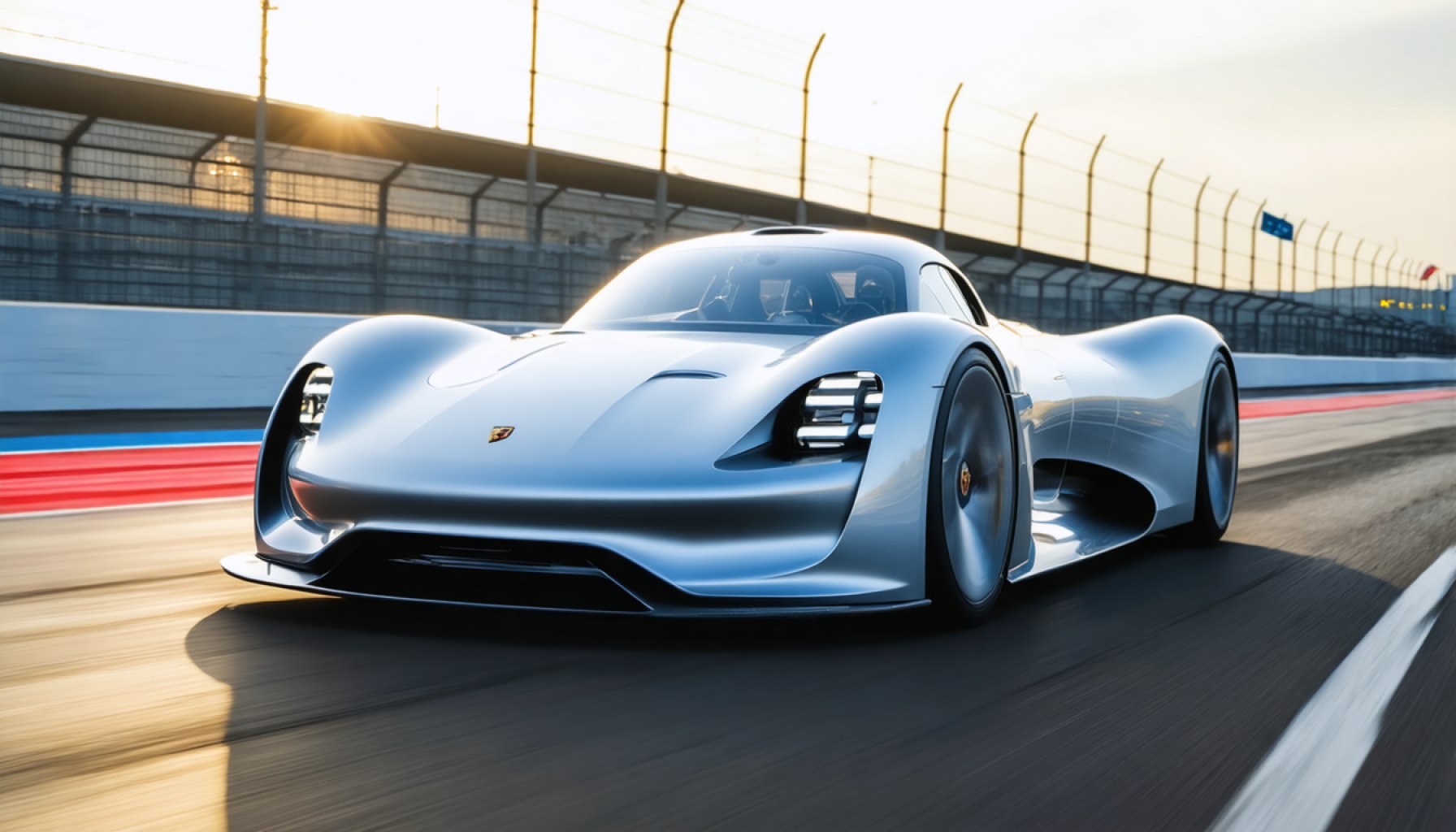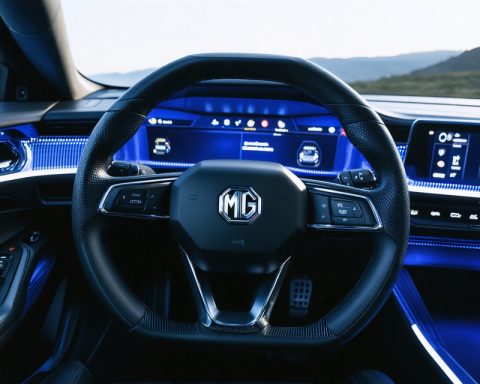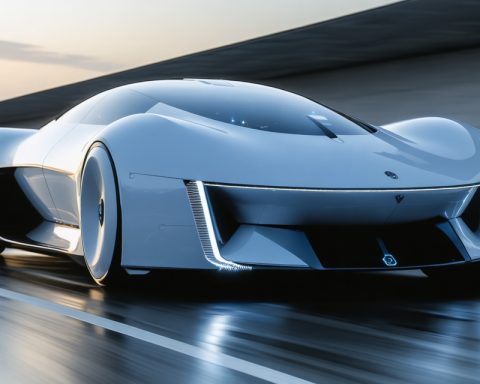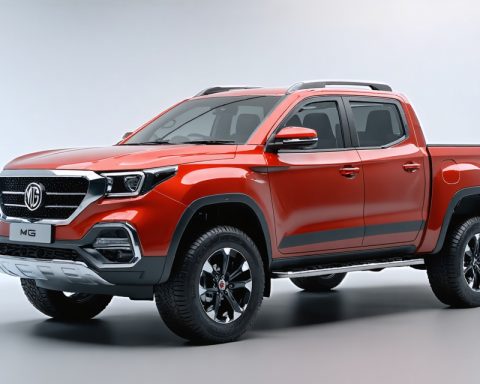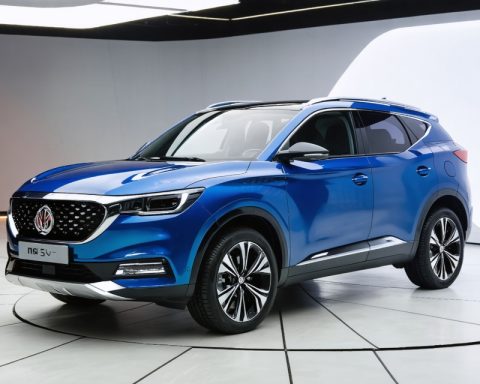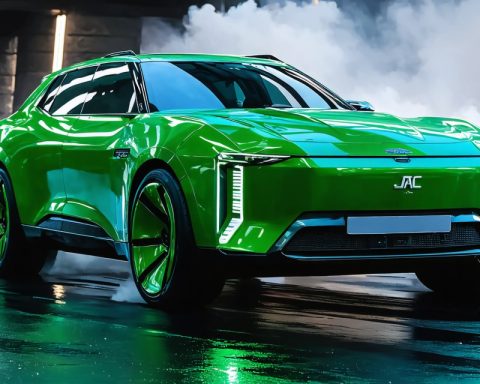- Porsche is pioneering sustainability by repurposing old EV batteries to create advanced new components, emphasizing a circular economy model.
- The pilot project aims to recover and refine critical elements like lithium, nickel, cobalt, and manganese from used batteries.
- Reclaimed materials are transformed into “black mass,” which is further purified to meet high-quality standards for new battery technology.
- Porsche plans to integrate these recycled materials into test batteries, aligning with EU regulations for recycled content by 2031.
- Through this initiative, Porsche enhances both sustainability and performance, setting a benchmark for the automotive industry.
- Porsche’s strategy addresses resource scarcity and geopolitical challenges, driving innovation in green energy solutions.
Porsche has embarked on a groundbreaking endeavor that intertwines sustainability with technological innovation, setting the stage for a future where the remnants of yesterday power the ambitions of tomorrow. With a determined stride into the world of electric vehicles, Porsche’s new multi-phase pilot project reimagines the life cycle of EV batteries, transforming them from seemingly spent entities into repositories of renewed potential.
Along the bustling corridors of Porsche’s research facilities, old electric vehicle batteries hum with a second life. The initial phase of this avant-garde program dissects these powerhouses, extracting precious nuggets of lithium, nickel, cobalt, and manganese—a treasure trove obscured within the dense weave of circuitry and casing. As grinders mechanically shred and pulverize, these elements emerge as “black mass,” a dark granulate that whispers of future potential.
With precision akin to a master jeweler refining raw diamonds, Porsche meticulously refines this black mass, isolating the elements with almost alchemical finesse. These reclaimed elements promise not just a hark back to the luxurious efficiency of Porsche’s engineering, but a leap forward—each atom poised to breathe life into cutting-edge battery technology. Maintaining an unwavering focus on material purity, Porsche upholds its legacy of quality, ensuring the recycled materials stand shoulder to shoulder with virgin resources.
In its forward gaze, Porsche outlines plans to push these recycled components into the heart of real-world test batteries, seamlessly blending new energy with old wisdom. This endeavor forms the cornerstone of Porsche’s sustainability strategy, as affirmed by Barbara Frenkel from the Executive Board, envisioning a future where circular economies are not just ideals but embedded practices.
As the world reels under the pressures of resource scarcity and geopolitical uncertainties, Porsche’s strategic foresight shines as a beacon of innovation. Embracing the circular economy not only safeguards the supply chain but also aligns with impending EU regulations demanding greater recycled content and stringent traceability in batteries by 2031.
By leading this charge, Porsche solidifies its role as a trailblazer in sustainable automotive production, pursuing both environmental stewardship and premier performance. This project heralds a transformation of waste into resource, and speaks to a future where every drive in an electric Porsche is powered by a commitment to the environment as much as by technology. The journey of an EV battery thus transcends its material fate, becoming a symbol of Porsche’s relentless pursuit of progress—one that promises to electrify the globe with cleaner, greener energy.
Porsche’s Electric Revolution: How Yesterday’s Batteries Power Tomorrow’s Innovation
Delving Deeper into Porsche’s Battery Recycling Project
Porsche’s innovative journey in transforming EV batteries goes beyond simply recycling materials. This effort places the company at the forefront of sustainable technology, championing a circular economy that other automotive giants are keenly observing.
How Porsche is Reinventing Battery Recycling
1. Material Extraction Process: Porsche utilizes advanced mechanical and chemical processes to extract valuable metals like lithium, nickel, cobalt, and manganese from used batteries. This reduces the need for new mining operations, lowering environmental impact significantly.
2. Applications Beyond EVs: While the primary focus is on reusing these materials for new EV batteries, Porsche’s innovations are opening avenues for other industries such as consumer electronics and renewable energy storage, where these materials are also in demand.
Real-World Use Cases
– Supply Chain Stability: By maximizing the use of recycled materials, Porsche minimizes its exposure to geopolitical risks and raw material shortages.
– Regulatory Compliance and Advantage: With EU regulations on battery recycling tightening, Porsche is positioning itself as a leader ready to comply, potentially gaining a competitive edge over manufacturers who are yet to adapt.
Industry Trends in EV Battery Recycling
– Increasing pressure from governments worldwide is driving the automotive industry towards sustainable practices. Companies are investing in R&D to improve recycling efficiencies and boost recycled content in new batteries.
– The global EV battery recycling market is expected to grow substantially, with MarketsandMarkets projecting a leap from $1.7 billion in 2021 to $4.7 billion by 2027.
Challenges and Limitations
– Technological Barriers: Despite advancements, the recycling process is complex and costly. Not all materials can be recovered efficiently yet, necessitating continued innovation.
– Economic Viability: The cost-effectiveness of large-scale recycling versus new material procurement remains a challenge, impacting overall output pricing strategies.
Porsche’s Road Ahead: Sustainability and Innovation in Synergy
– Quality Assurance: Porsche is committed to ensuring that recycled materials meet stringent quality standards, integrating them without compromising on performance.
– Circular Economy Models: By setting up pilot projects and real-world applications, the company is creating blueprints for comprehensive, sustainable manufacturing processes.
Actionable Recommendations
– Consumers: Support automotive brands that prioritize sustainable initiatives and contribute to reducing carbon footprints. Choosing an EV from companies like Porsche could support broader environmental goals.
– Investors: Look out for companies that are not just marketing green initiatives, but are actively embedding sustainability into their manufacturing practices.
Quick Tips for Readers
– Stay informed about companies’ sustainability practices. This awareness can guide more eco-conscious purchasing decisions.
– Advancements in technology, such as those by Porsche, indicate that recycled products are sometimes indistinguishable from those made with new materials, offering equal quality and performance.
Conclusion
Porsche’s initiative transforms the landscape of EV battery recycling, illustrating a powerful fusion of technology and sustainability. The project not only reflects Porsche’s commitment to the environment but also echoes larger industry trends towards a greener future. By supporting sustainable practices, consumers and industries alike can drive further innovation and growth in environmentally responsible directions.
For more insights on automotive innovations and sustainability, visit Porsche.
